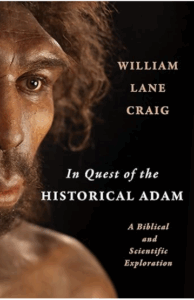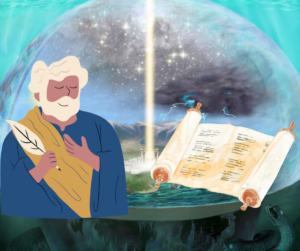 Message Body:
Message Body:
I read in your article that you believe that Adam being made of dust was a reference to his being mortal, in this case “Why There’s No Conflict Between Evolution and a Historical Adam”, I have a doubt about that, first of all, wouldn’t that violate the Ecumenical councils? In here:
“That whosoever says that Adam, the first man, was created mortal, so that whether he had sinned or not, he would have died in body — that is, he would have gone forth of the body, not because his sin merited this, but by natural necessity, let him be anathema.” (Council of Carthage +419, Canon 109)
“[God] made everything that he made very good {cf. Genesis 1:31}, and cannot ever be the maker of evil. But if there is any evil, that is to say, sin, that comes about contrarily to the Divine Will, in man or in demon, — for that evil is simply in nature, we do not acknowledge, — it is either of man, or of the devil. For it is a true and infallible rule, that God is in no way the author of evil, nor can it at all by just reasoning be attributed to God.” (Council of Jerusalem +1672, Decrees IV)
“As all Mankind, during the state of Innocence, was in Adam; so in him all Men, falling from what he fell, remained in a State of Sin. Wherefore Mankind is become, not only subject unto Sin, but also, on Account of Sin, unto Punishment; which, according to the Sentence pronounced of God, was (Gen. ii. 17), In the Day that thou eatest of the Tree, thou shalt surely die. And to this the Apostle alludes {Rom. v. 12), Wherefore as by one Man Sin entered into the World, and Death by Sin, and so Death passed upon all Men, for that all have sinned. So that we are conceived in our Mother’s Womb, and born in this Sin, according to the holy Psalmist (Psal. li. 7), Behold, I was shapen in Wickedness, and in Sin hath my Mother conceived me. This is called parental, or original Sin, first, because that, before this, Man was free from all Sin; although the Devil was then corrupt, and fallen, by whose Temptation this parental Sin sprang up in Man; and Adam becoming guilty, we all likewise, who descend from him, become also guilty. Secondly, this is called original Sin, because no Mortal is conceived without this Depravity of Nature.” (Council of Jassy +1642, Question 24)
“The earth, created, adorned, blessed by God, did not have any deficiencies. It was overflowing with refinement. “God saw,” after the completion of the whole creation of the world, “everything that He had made: and, behold, it was very good” (Gen. 1:31). Now the earth is presented to our eyes in a completely different look. We do not know her condition in holy virginity; we know her in the condition of corruption and accursedness, we know her already sentenced to burning; she was created for eternity. The God-inspired writer of Genesis says that the earth in its original condition did not have need of tilling (Gen. 2:5): it brought forth by itself grains and other nourishing grasses, vegetables and fruits overabundantly and of superb worth. There were no harmful growths on it; plants were not subjected either to decay or to diseases; both decay and diseases, and the weeds themselves, appeared after the alteration of the earth following the fall of man, as one ought to conclude from the words of God to Adam as he was being exiled from Paradise: “Thorns and thistles shall it [the ground] bring forth to thee” (Gen. 3:18). According to its creation, there was on it only the splendid, only the wholesome, there was only that which was suitable for the immortal and blessed life of its inhabitants. Changes in the weather did not exist: it was continually the same-the most clear and favorable. There were no rains. A spring came forth from the earth and watered its face (Gen. 2:5-6, Septuagint). The beasts and other animals lived in perfect harmony among themselves, nourishing themselves on plant life.” (Homily on Man, pg. 19)
And what about the fact that the majority view of the Church Fathers, medieval theologians, and Reformers were Young Earth creationists? For documentation, see creation.com/fathers.
I ask this as a matter of theological consistency since our core beliefs like the Trinity, Christology and many other positions clearly come from the Ecumenical councils and the Church Fathers. That is why we reject outliers who believed in positions like Modalism and other heresies.
* Henrique
———————————————————————————
 To those unfamiliar, what Henrique is referring to is The Archetypal view of Adam and Eve that John Walton defends in his book “The Lost World Of Adam and Eve”. I have defended it in writing in places such as the blog post Henrique referred to, but also my much longer paper “Genesis 2-3: Adam and Eve as Archetypes, Priests In The Garden Of Eden, and The Fall”, and in my livestream “Genesis 2: Archetypes, Priests In The Garden Of Eden, and The Creation/Evolution Debate”.
To those unfamiliar, what Henrique is referring to is The Archetypal view of Adam and Eve that John Walton defends in his book “The Lost World Of Adam and Eve”. I have defended it in writing in places such as the blog post Henrique referred to, but also my much longer paper “Genesis 2-3: Adam and Eve as Archetypes, Priests In The Garden Of Eden, and The Fall”, and in my livestream “Genesis 2: Archetypes, Priests In The Garden Of Eden, and The Creation/Evolution Debate”.
Old Testament scholar Michael Heiser says it well: “…there is a pervasive tendency in the believing Church to filter the Bible through creeds, confessions, and denominational preferences. That’s not a bad thing. It’s a human thing. Creeds are useful for distilling important points of theology. But they are far from the whole counsel of God, and even farther from the biblical world. This is something to be aware of at all times.
Lest I be misunderstood, I’m not arguing that we should ignore our Christian forefathers. I’m also not saying that we’re smarter. They were prodigious intellects. The problem isn’t their brain power—it’s that they were simply too removed from the world of the biblical writers and had little chance of bridging that gap.
It might sound odd, but we’re actually in a better position than any of our spiritual forefathers in that respect. We live at a time when the languages of the major civilizations that flourished during the lifetimes of the biblical writers have been deciphered. We can tap into the intellectual and cultural output of those civilizations. That output is enormous—millions of words. We can recover the worldview context (their ‘cognitive framework’ in scholar-speak) of the biblical writers as never before. The same is true of the New Testament writers because they inherited what had come before them and were part of a first-century world two thousand years removed from us.”1

If you have any questions about Christian theology or apologetics, send Mr. Minton an E-mail at CerebralFaith@Gmail.com. It doesn’t matter whether you’re a Christian or Non-Christian, whether your question is about doubts you’re having or about something you read in The Bible that confused you. Send your question in, whatever it may be, and Mr. Minton will respond in a blog post just like this one.
Share this:
- Click to share on Facebook (Opens in new window) Facebook
- Click to share on X (Opens in new window) X
- Click to print (Opens in new window) Print
- Click to email a link to a friend (Opens in new window) Email
- Click to share on Pinterest (Opens in new window) Pinterest
- Click to share on Reddit (Opens in new window) Reddit
- Click to share on LinkedIn (Opens in new window) LinkedIn
- Click to share on Tumblr (Opens in new window) Tumblr
Discover more from Cerebral Faith
Subscribe to get the latest posts sent to your email.





Thank you for the answer, what I meant is, Christ promised He would guide His Church into all truth, so why would He cause Genesis to be misread, only for Scholars to find in the 21st century the correct interpretation? Regardless of whether you are Catholic, Orthodox or Protestant, this is a really hard question to answer! Even because the apostle John himself alludes to Genesis 1:1 in John 1:1, and in verse 3 of John 1 we read:
“Through him all things were made; without him nothing was made that has been made.” (John 1:3)
Since even you admitted that this verse refers to material creation in your article “The Cosmic Temple View Of Genesis One”, so the fact that it is alluding to Genesis 1:1, wouldn’t that make Genesis 1:1 about the material creation of the Universe? Also, it says here that the Word created everything, wouldn’t that be linked to the “Let there be” found in Genesis? And where did the New Testament authors get this idea that the Word created everything if it wasn’t from the Old Testament? Do you think the New Testament Authors also misread Genesis because they were out of cultural context?!
First of all, John 16:13 is a widely misused text to support the idea that you can understand certain biblical passages without having to some hard thinking or research. In his book “(Mis)Interpreting Genesis”, Ben Stanhope writes
Stanhope, Ben. (Mis)interpreting Genesis: How the Creation Museum Misunderstands the Ancient Near Eastern Context of the Bible (pp. 165-166). Scarab Press. Kindle Edition.
.
Secondly, although linking John 1:1 to Genesis 1:1 is a commonly held view, there is another alternative. Someone recently commented in the “Answers To Answers In Genesis” Facebook group that:
“Proverbs 8 is just a stronger contender than the flashy Genesis 1.”
Why not both? John 1:1 can be a allusion to Genesis 1:1 and Proverbs 8:23 in the same time:
https://hermeneutics.stackexchange.com/questions/38260/is-john-11-3-an-allusion-to-proverbs-822-31-lxx
Also, again, it says here that the Word created everything, wouldn’t that be linked to the “Let there be” found in Genesis? And where did the New Testament authors get this idea that the Word created everything if it wasn’t from the Old Testament? Do you think the New Testament Authors also misread Genesis because they were out of cultural context?!
Whether John 1:1 is an allusion to both Proverbs 8:23 AND Genesis 1:1 depends on where you land in the independent clause/dependent clause debate. I argue in my paper “Genesis 1: Functional Origins, Temple Inaguration, and Anti-Pagan Polemics” and in my presentation “Genesis 1: How The ANE Context Solves The Science/Faith Controversy” that based on the Hebrew grammar, the structure of a typical ANE creation myth, that it is most likely a dependent clause rather than an independent clause.
.
Where would the New Testament authors have gotten the idea that the Word created everything? And I’m assuming you mean “create” in a material sense, not the functional sense of Genesis 1. Well, even the Old Testament authors believed God was responsible for the material creation of the cosmos. They took that for granted. The question they wanted answered – as all Ancient Near Eastern creation texts tried to answer – was WHY God/the gods created everything (i.e what everything’s purpose was). And so Genesis 1, Enuma Elish, Atrahasis, Assyrian Kar 4, and other creation texts describe their gods creating everything and states what their functions are. The NT writers would have had that same presupposition that God was responsible for the material origins of the cosmos. That Yahweh was responsible for the material origins of the cosmos was as much as a given as the very existence of Yahweh. And just as the OT authors didn’t seek to argue for God’s existence, they didn’t seek to argue that God was the reason why there is something rather than nothing. What the OT authors did in both cases was assume the existence of God and his role as material originator, and argue instead that God was superior to the gods of the nations, and give us the reasons WHY God created us and the world we live in.
.
But moreover, by the time of The New Testament writers, the focus had shifted from asking why God or the gods made us with asking how things came to be. Concern with material origins is evident in what natural philosophers like Aristotle had written – See “Aristotle Atomic Theory Model Explained” — https://healthresearchfunding.org/aristotle-atomic-theory-model-explained/). So the chances of a material focus for texts like John 1 and Hebrews 1 is very high.
.
You do raise an interesting question about what how The New Testament authors interpreted Genesis 1. Honestly, I don’t know. They don’t give a commentary on the chapter, and what they DO say about it isn’t anything that would favor one interpretation over another (Day-Age, YEC, Framework, et. al.) Although I do think what they say rules out a purely mythological (i.e fictional) picture of The Primeval History (e.g Romans 5).
Got it, that makes sense, thanks
I know no one told me to say my opinion about it, but I’ll leave it here anyway, lol
The language used at the beginning of the Council of Carthage is somewhat ambiguous, but look what will be stated later “so that whether he had sinned or not, he would have died in the body”, I believe that God created Adam with a body made to die but that he did not die because God kept him alive by giving him preternatural gifts, which is consistent with the assertion of this article, because it only condemns the idea that Adam would die if he had no sin and not that Adam’s anatomical structure was created in the simile of a mortal animal. I am basing myself on this explanation of the previous clause
( Note: What has been declared is still somewhat ambiguous even though the title is: “That Adam was not created by God subject to death” )
⠀⠀⠀⠀⠀⠀⠀⠀
I don’t think God permitting animal death is considered evil. This concern probably stems from a view where God is a subject who abides by a moral law which is more fundamental than him. Like a being among a system pre-existing Him. This view is false. God is the very source of the moral law. He is Goodness itself. The standard of the Good flows forth from God’s very being. So, we can be sure that all of God’s actions are good, even if we can’t fully comprehend it. This is part of what it means to trust in God. Humility is necessary when we recognize that God’s infinite mind generated the Divine Plan and no finite mind can fully comprehend it on his own. Since our finite minds only capture glimpses of the Divine Plan – we cannot fully reconcile every single “problem” we encounter. I just wanted to start with this preface to remind ourselves that although we should try to exercise our intellectual faculties to the best of our abilities to resolve “apparent issues” we see, our limited intellects will always have some internal problems within our worldview. Since all worldviews have apparent problems, the question of determining which worldview is true should be based on which has the best explanatory power. This is something to keep in mind while soul-searching. That aside, I shall try to address the problem
If we think permitting animal death is evil, then why would permitting plant death not make God evil? Both scenarios have life reducing to non-life, which seem bad to our fallen minds. Now we know from Genesis that plant death was permitted. We also know that God is Good. So, I do not want assert that permitting plant death makes God evil, since it would lead to a contradiction. Similarly, the presuppositions that God passively permitting death of animals makes Him evil seems like a false presupposition as well. If we can affirm this, then there are no problems with the Council of Jerusalem decree
I don’t understand how the Council of Jassy condemns death before the fall, or the fact that Adam was anatomically mortal, this is only affirming original sin
As regards to Ignatius Bryanchaninov’s Homily on Man: he is a great saint, but that doesn’t mean he was right about everything. That is, the statement he made is not necessarily a Dogma
And the last part that says that Young Earth Creationism was a majority view. In this regard, I would say that they were getting into a scientific question that they didn’t have many ways to get right precisely about, and so they resorted to biblical genealogy models based on dubious assumptions, which generated erroneous dates. Modern science brings more solid and reliable knowledge on this subject
Thank you for your input. That was helpful. I would also deny that Adam was subject to death before the fall. What I thought [and what my questioner thought] this council was affirming was that Adam was made with an inherently immoral, indestructable body (like the kind we’ll have at the resurrection). I also agree that God could have morally sufficient reasons for permitting animals to suffer and die pre-fall just as He has morally sufficient reasons for animals to suffer and die post-fall. At least one reason could be so that they’d adapt to increasingly intelligent humans. Hugh Ross posits this in “More Than A Theory” and I quote him in a couple of articles on this website, and in my Genesis 3 presentation on YouTube. There may be other reasons, but that’s at least one plausible possibility.
You’re welcome!